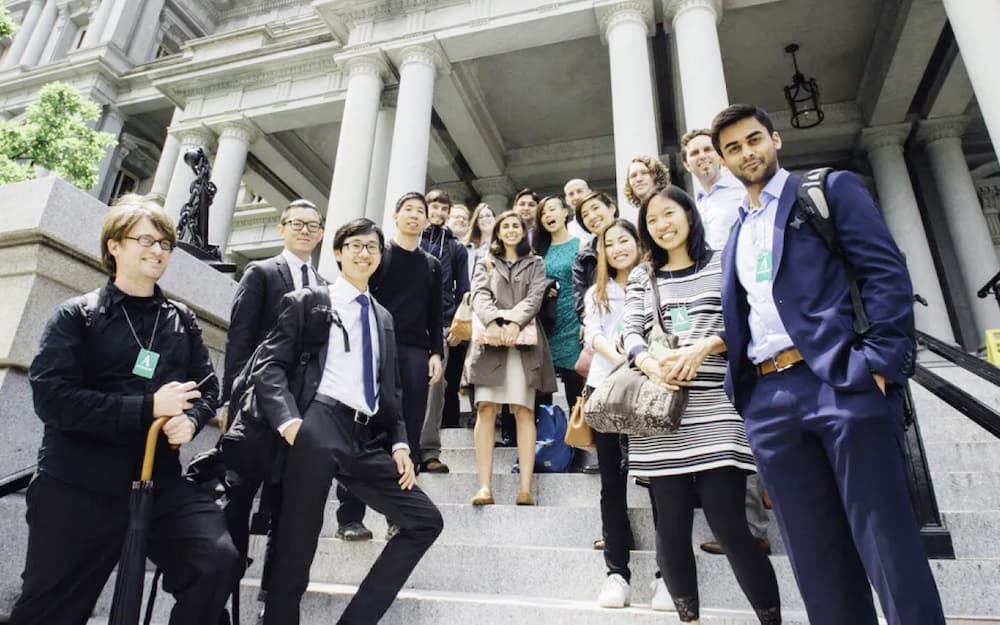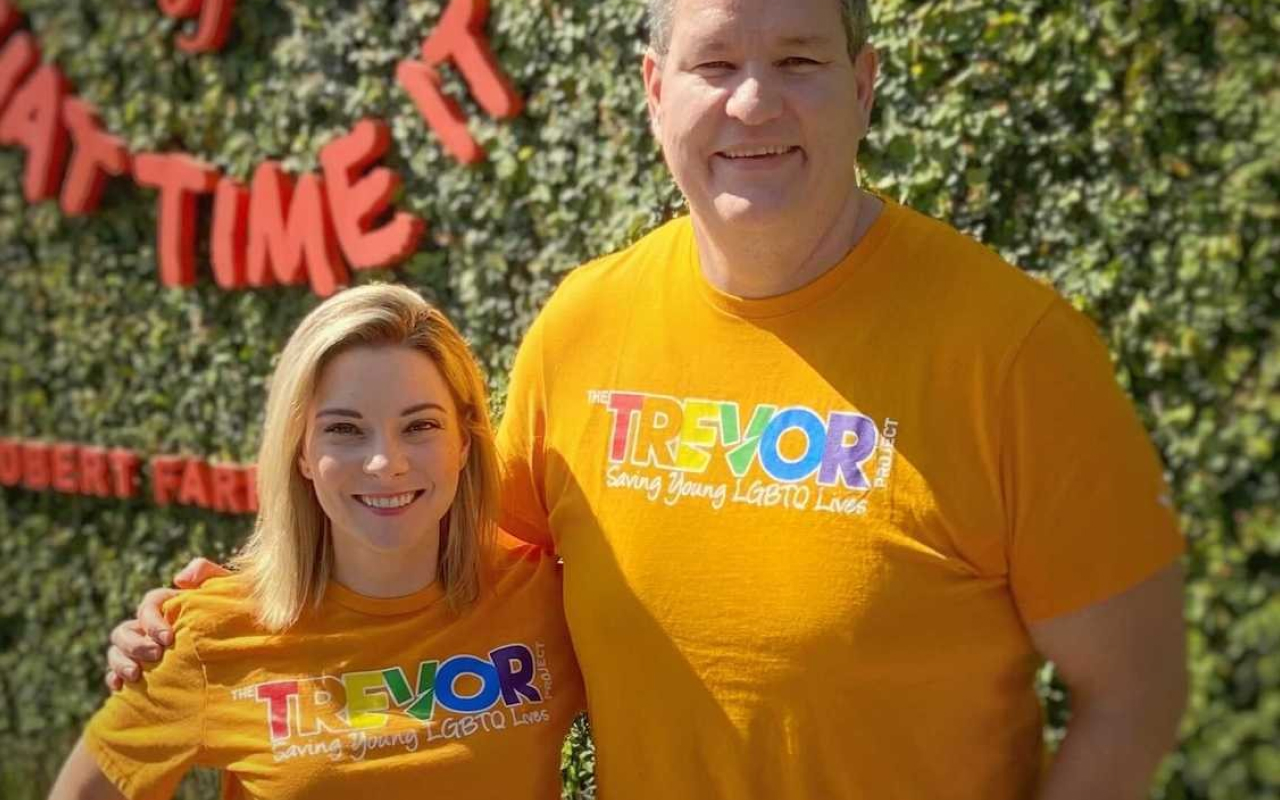Lattice Helps Empower Managers at Special Olympics Texas
A conversation with:
A conversation with:
Chief Administrative Officer


I tell our newer staff, ‘If I can do it, any of you can. Lattice is a tool that's going to help get you where you want to be.’ In a global organization like this, everybody can develop for themselves what they want out of their time at Special Olympics.
Chief Administrative Officer
You might expect the working environment at Special Olympics Texas to be nothing like the breakneck, cutthroat culture you find on Wall Street or in Silicon Valley – and you’d be right. “Usually when you hear somebody say, ‘We have a family atmosphere,’ that's a red flag,” says Sarah Haines, chief administrative officer. “But within our team, we really are a group of people that are extremely passionate about the same social issue. We've removed a lot of the competitiveness. Everything is about how we can make each other successful, and how we can increase the success of the organization.”
Nevertheless, Special Olympics Texas suffers from many of the same problems familiar to people operations professionals in for-profit businesses. Its 19 offices are spread across the entire state of Texas – that’s 268,000 square miles – all of which were impacted by the pandemic lockdown, forcing the normally collaborative staff to abruptly begin working from home. This was especially hard for the organization’s athletes, many of whom are already isolated to some degree. “Everybody got a cell phone and a Chromebook,” says Sarah. But, then what? The organization quickly knew it needed a way to revitalize its sense of community in a time when community was impossible to come by.
Prior to adopting Lattice, Sarah says the organization was in “a state of pen and paper.” She adds, “Communicating with supervisors was really done in person, so if your supervisor wasn’t in your town, people said they felt isolated and forgotten by the organization. They were running their own show that didn't necessarily correspond to the way Special Olympics was going.”
Evaluations were a prominent issue because they were informal and underdeveloped. “Again, it was done on paper, just an evaluation by your supervisor,” says Sarah. “As an employee, you really didn't get any input into what that evaluation looked like, and I think over time people stopped trusting the evaluation system.” For an organization that’s all about passion, Special Olympics Texas was running the risk of alienating ardent workers who were feeling increasingly underappreciated and undervalued.
Meanwhile, silos were developing. “Programs only spoke to programs. Fundraising only spoke to fundraising. Each of the four areas across the state were really in competition with each other, as opposed to working in concert with each other,” says Sarah. “When we had a great idea, it didn't go anywhere because we couldn't figure out how to get everybody to hear it.”
Sarah sums up the need for Lattice simply: “We wanted to make sure that every employee was getting the same opportunity for great management and the ability to develop professionally.”
Lattice was recommended as a possible solution to these issues by the CEO of Special Olympics Texas, and after evaluating the system firsthand Sarah says she knew it was going to provide the help the organization needed in revamping its evaluation process – plus provide “so many other extra bonuses that came with it.”
Special Olympics Texas began rolling out Lattice during the summertime lull in competition season, which made it easier to gain traction within the organization. “We did Zoom trainings with our managers to understand how we wanted to use the system and to explain why things were important,” says Sarah, who monitored the action from behind the scenes to ensure managers were using the tools properly.
In addition to employee evaluations, Special Olympics Texas initially got started by rolling out goal-setting and surveys, and Sarah says it was exciting to take action on survey answers as they were returned, “which told people this wasn’t just a ‘get-busy’ system.” Being able to put survey responses to practical use, she says, has really helped employees understand how their voice could make a difference in the organization.
When it comes to evaluations, Lattice really changed the game. Sarah says the old methodology of evaluations and goal setting would be to sit down with her manager and write down five goals for the next year. “The following year, we’d pull out that paper and ask whether I achieved any of those goals that I wrote down. That’s the only time I ever saw that paper.” For staff who were tasked with reaching numerical goals, Sarah says the situation was even worse. “What Lattice gave us was this opportunity to have a living document,” she says, “something that you look at regularly, about your goals and what you are going to do, and how that attaches itself to different parts of Special Olympics.”
Several years ago, Special Olympics Texas made a bold decision to decentralize leadership, essentially giving everyone in the organization the ability to become a manager if they were interested. “We saw a lot of people that had great ideas and passion becoming managers,” says Sarah, “but without a whole lot of experience.”
Lattice OKRs have been instrumental in giving these new managers a much-needed framework in which to operate, helping employees understand expectations and plan for the future. The system at Special Olympics Texas is designed to be extremely flexible: Different managers operate on different goal cycles, some tied to a yearly calendar, some tied to a particular sports season, which can be 12 weeks long or even shorter. The organization also uses the feedback tool to keep praise moving to both employees and their managers – a critical tool for an organization where people are often motivated more by doing good for the world rather than by being highly paid.
“What I think Lattice really lets us focus on is getting to find out who sees this as their home, as opposed to just another place they're going to work,” says Sarah. “There's nothing wrong with people who have their eye on something bigger, but Lattice has really given me the opportunity to connect with people who are looking for leadership opportunities and connect them with the right mentors to get them where they want to be.”





